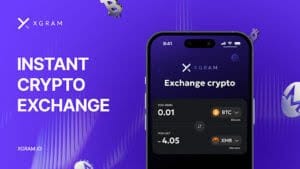PKT Network Aims To Decentralize Internet Access

The internet is arguably the most influential invention of the last century. Along with this innovation, monopolistic internet service providers (ISP) and governments mostly control internet access worldwide. Some countries including China, Iran, and North Korea even limit how their citizens access the internet. This is notable, because without access to the internet, people in certain countries are denied basic access to connectivity and information. Even in westernized countries, internet access is under surveillance and privacy and security is a significant concern.
Mesh networks offer a solution that can get people connected to the internet peer to peer. However, the challenge has been how to scale these types of mesh networks. Many people don’t even understand it is possible to get on the internet without subscribing to a traditional ISP.
In 2011, a technology called cjdns was launched, which makes it so anyone can be autonomously granted an IP address without paying a traditional ISP for access. This free to use, open source software also enables peer to peer mesh networking. For example, if Alice doesn’t have an internet connection, but Bob is connected to the internet, then Alice can connect to Bob, and now Alice has access to the internet. However, for cjdns to scale, real infrastructure, network operators and market awareness is required.
PKT Network Is Fast and Decentralized
In 2019, PKT introduced a new network model that aims to incentivize people to connect their internet bandwidth to the PKT Network with little technical knowledge. As the PKT Network scales, it is designed to leverage cjdns for peer to peer connectivity. Internet-connected homes and businesses can run free PKT software called PacketCrypt, which economically encourages private individuals to maintain high quality internet connectivity in both rural and urban areas worldwide. This high speed internet built by the people, makes the PKT Network fast, resilient, and paves the way for PKT and cjdns to help connect the next 1 billion people to the internet in a decentralized way.
PKT is a fully decentralized, blockchain-powered network. There is no central authority, no company, no investors and no pre-mined coins. The source code for the blockchain is a Bitcoin fork, which changes Bitcoin’s SHA256 proof of work (PoW) to PacketCrypt, the world’s first bandwidth-hard PoW. Bandwidth-hard means that both CPU and bandwidth are required to connect to the network. People that connect to the PKT Network are paid in the native cryptocurrency called PKT Cash ($PKT), which uses a 60 second blocktime and is 10x faster than Bitcoin. PKT Cash has a limited supply of 6 billion coins, which will take a total of 63 years to mine.
Monetizing Unused Internet Bandwidth
PKT decentralizes the location-specific role of infrastructure provider and the sophisticated network operator role traditionally overseen by ISPs. By dividing these roles, average people can now participate in the annual $2 trillion dollar bandwidth market. PKT enables an internet-connected home or business to connect to the PKT Network and be paid to maintain their connection to the internet. This effort provides connectivity and outsources the cost of maintenance of valuable infrastructure for the PKT Network. This is a paradigm shift for internet users, called Edge Points, who until now have been end-points in their local network and are now becoming gateways to the internet in their neighborhoods. An Edge Point is an internet connected device that any individual, business, or community group can operate, granting access to the PKT Network with minimal technical knowledge. PKT also introduces the concept of a Cloud ISP, which is a hybrid between a VPN provider and a traditional ISP. A Cloud ISP handles sophisticated networking and customer-facing roles, like billing and customer service. The simplicity of becoming an Edge Point and the financial incentive of operating a Cloud ISP brings people around the world to the forefront of the bandwidth marketplace, which until now has been controlled by corporate ISPs and governments.
The Future of the PKT Network
The next advancement in PKT is introducing TokenStrike, a new token protocol with near-zero issuance cost and near-zero gas fees. TokenStrike is built to tokenize and trade bandwidth in a decentralized bandwidth trading marketplace. PKT Cash will interact with TokenStrike tokens similarly to how Ethereum is swapped and market traded against ERC20 tokens. Internet subscribers can harness their unused bandwidth and convert their valuable, use-it or lose-it resources into tradable assets and income. Additionally, traders can acquire tokenized network infrastructure and speculate on bandwidth leases in the same way people build equity portfolios or collect NFTs.
PKT Network is leading the charge in this new frontier of monetizing bandwidth. PKT is providing a scaling solution that expands connectivity beyond centralized, monopolistic ISPs and leverages valuable, underdeveloped edge networks around the world. PKT Network harnesses cjdns for end-to-end encryption and employs technological advances that improve internet routing and packet transmission efficiency across its network. PKT Network is built to reduce the cost of bandwidth for the masses, and help get the next 1 billion people connected to the internet.




